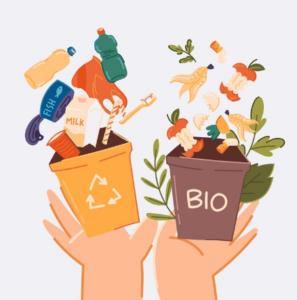
Trash Troubles The Battle Between Organic and Nonorganic Waste in Bali
Table of Contents
visa4bali.com – Trash Troubles The Battle Between Organic and Nonorganic Waste in Bali
As an advocate for environmental sustainability, I couldn’t ignore the pressing issue of trash management in Bali. The dichotomy between organic and nonorganic waste has become a significant concern, impacting the island’s ecosystems and threatening its natural beauty. Join me as I delve into the complexities of this issue and explore potential solutions to address the trash troubles plaguing Bali.
The Organic vs. Nonorganic Divide

Understanding the Difference
Organic waste, such as food scraps, garden trimmings, and biodegradable materials, naturally decomposes over time and can be recycled into compost or fertilizer. On the other hand, nonorganic waste, including plastics, glass, and metal, does not break down easily and can persist in the environment for years, causing pollution and harm to wildlife. Recognizing the distinction between these two types of waste is crucial for developing effective waste management strategies and minimizing environmental impact.
The Impact on Bali’s Environment
The improper disposal of both organic and nonorganic waste has taken a toll on Bali’s environment, tarnishing its pristine beaches, polluting its rivers, and threatening its marine life. Plastic pollution, in particular, has emerged as a major concern, with millions of tons of plastic waste entering Bali’s waterways and oceans each year. This pollution not only harms marine ecosystems but also poses risks to human health and tourism, which are vital to Bali’s economy.
The Organic Waste Challenge

Mismanagement and Pollution
While organic waste may seem harmless compared to plastics and other nonorganic materials, improper management can still lead to pollution and environmental degradation. In Bali, organic waste is often disposed of in landfills or left to decompose in open areas, contributing to air and water pollution. Without proper composting or recycling facilities in place, organic waste accumulates and emits greenhouse gases, exacerbating climate change and environmental degradation.
Opportunities for Composting
Despite the challenges, there are opportunities to address the organic waste challenge in Bali through composting initiatives. Composting organic waste not only reduces pollution and greenhouse gas emissions but also produces nutrient-rich compost that can be used to enrich soil and support sustainable agriculture. By promoting community-based composting programs and investing in infrastructure for large-scale composting facilities, Bali can turn organic waste into a valuable resource while reducing its environmental footprint.
Confronting the Nonorganic Waste Crisis

Plastic Pollution Proliferation
Plastic pollution has reached alarming levels in Bali, threatening the island’s ecosystems, wildlife, and public health. Single-use plastics, such as plastic bags, bottles, and packaging, are ubiquitous in Bali’s streets, rivers, and beaches, clogging waterways and harming marine life. The proliferation of plastic pollution poses a significant challenge for waste management efforts in Bali and requires urgent action to reduce plastic consumption and promote sustainable alternatives.
The Urgency of Recycling
To combat the nonorganic waste crisis, recycling must be prioritized as a fundamental component of Bali’s waste management strategy. Establishing efficient recycling systems and incentivizing recycling behavior can help divert nonorganic waste from landfills and reduce the environmental impact of plastic pollution. By promoting a circular economy model where materials are recycled, reused, and repurposed, Bali can minimize waste generation and preserve its natural environment for future generations.
Collaborative Solutions and Community Engagement
Government Intervention
Government intervention is essential for implementing effective waste management policies and regulations in Bali. By enacting laws to ban single-use plastics, promote waste segregation, and invest in recycling infrastructure, the government can create an enabling environment for sustainable waste management practices. Additionally, public education campaigns and community outreach efforts can raise awareness about the importance of waste reduction and encourage behavioral change among residents and tourists alike.
Community-Led Initiatives
Community-led initiatives play a crucial role in addressing the organic and nonorganic waste challenges in Bali. From beach cleanups and waste collection drives to educational workshops and advocacy campaigns, grassroots organizations and local communities are taking action to protect Bali’s environment and promote sustainable living practices. By fostering collaboration and empowerment at the grassroots level, these initiatives empower individuals to become agents of change and contribute to a cleaner, healthier Bali.
Toward a Trash-Free Future
The battle between organic and nonorganic waste in Bali is a complex and multifaceted issue that requires a comprehensive approach to address effectively. By recognizing the distinct challenges posed by each type of waste and implementing targeted strategies to manage both, Bali can move closer to achieving its goal of a trash-free future. Through collaborative efforts, government intervention, and community engagement, we can work together to preserve Bali’s natural beauty and protect its environment for generations to come.
The Best Visa Agency in Bali – www.visa4bali.com
Experienced specialists managing the entire application process from start to finish !





